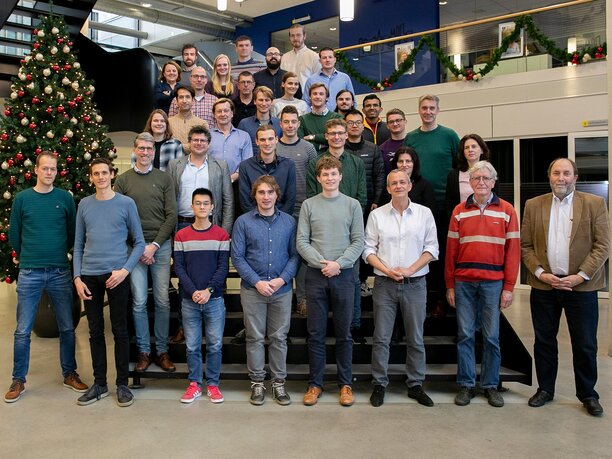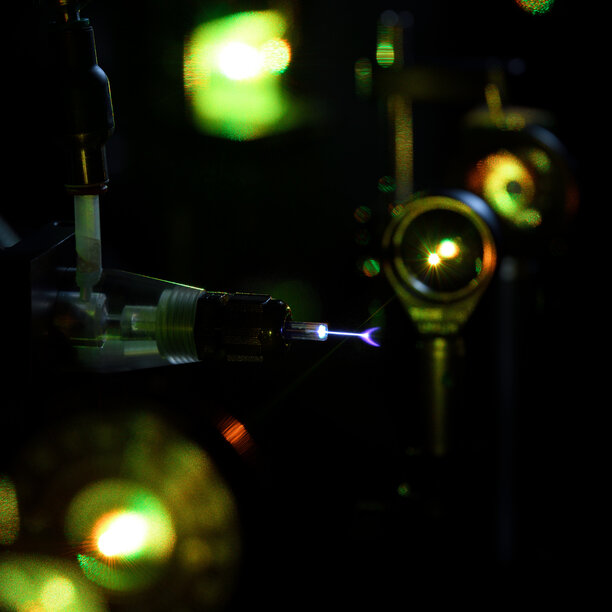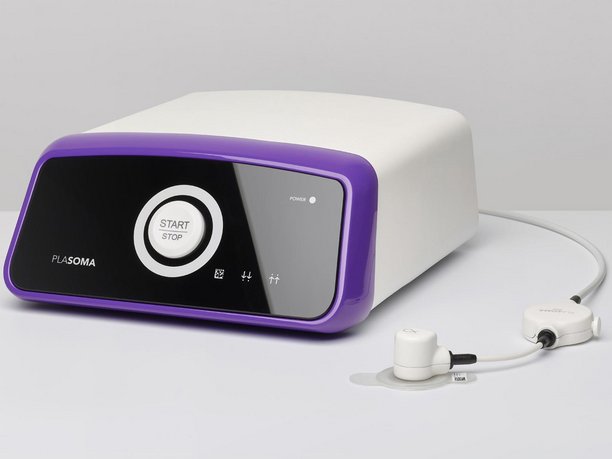As much as we enjoy exploring new fields of application, our research has always been based on one underlying interest: the elementary processes in and the physics of plasmas
In the EPG group, we use our thorough understanding of elementary processes to develop predictive models of a large range of plasmas. These models take into account the intensity and effectivity of processes such as ionization, recombination, transport, radiation, excitation, de-excitation, chemical reactions and surface processes.
We integrate state-of-the art plasma diagnostics (imaging, passive and active spectroscopy) and advanced plasma models that enable plasma users to optimize the plasma source for their specific application. Over the years, the group has worked on a wide range of applications: plasma etching, lighting, medical applications and so much more.
Our PRINCIPAL INVESTIGATORS
Work with us!
Please check out the TU/e Vacancies page for further opportunities within our group.
Research Areas
Meet some of our Researchers
News
![[Translate to English:] [Translate to English:]](https://assets.w3.tue.nl/w/fileadmin/_processed_/7/e/csm_Donders_Tim_AP_VH_4341_PROM_fc69558a43.jpg)
![[Translate to English:] [Translate to English:]](https://assets.w3.tue.nl/w/fileadmin/_processed_/9/d/csm_Philpott%20Banner%20image_b8a74f6868.jpg)

![[Translate to English:] [Translate to English:]](https://assets.w3.tue.nl/w/fileadmin/_processed_/4/a/csm_Wang%20Banner%20image_d71d57f58c.jpg)
![[Translate to English:] [Translate to English:]](https://assets.w3.tue.nl/w/fileadmin/_processed_/0/3/csm_Guo%20Lightning%20image_6ef596f5c5.jpg)
![[Translate to English:] [Translate to English:]](https://assets.w3.tue.nl/w/fileadmin/_processed_/2/e/csm_Li%20Banner%20image_9e3fc34e0c.jpg)
Recent Publications
Our most recent peer reviewed publications
-
Shuai Zhao,Yanfei Wang,Ximing Zhu,Ana Sobota
Characteristics of the O(1S) to O(1D) 557.7 nm green emission observed in an argon plasma jet
Journal of Physics D: Applied Physics (2024) -
C.M.Y. Claassen,M.W. Baltussen,E.A.J.F. Peters,J.A.M. Kuipers
Coupling of multicomponent transport models in particle-resolved fluid-solid simulations
Chemical Engineering Science (2024) -
Tijin Saji,J.M. Vicent-Luna,Thijs J.H. Vlugt,Sofia Calero,Behnaz Bagheri
Computing solubility and thermodynamic properties of H2O2 in water
Journal of Molecular Liquids (2024) -
Ravi Patel,Jeroen van Oijen,Sander Nijdam,Nico Dam
Plasma-assisted ignition-stabilized combustion (PAISC)
Combustion and Flame (2024) -
Olivier J.A.P. van Rooij,Hans Höft,Ana Sobota
DBD-like and electrolytic regimes in pulsed and AC driven discharges in contact with water
Journal of Physics D: Applied Physics (2024)
Contact
-
Visiting address
FluxGroene Loper 195612 AP EindhovenNetherlands -
Visiting address
FluxGroene Loper 195612 AP EindhovenNetherlands -
Postal address
FluxP.O. Box 5135600 MB EindhovenNetherlands -
Postal address
FluxP.O. Box 5135600 MB EindhovenNetherlands -
Support Staff
Anita Peeters
![[Translate to English:] [Translate to English:]](https://assets.w3.tue.nl/w/fileadmin/_processed_/c/4/csm_Elementary%20Processes%20in%20Gas%20Discharges_planeterella_632656609f.jpg)


